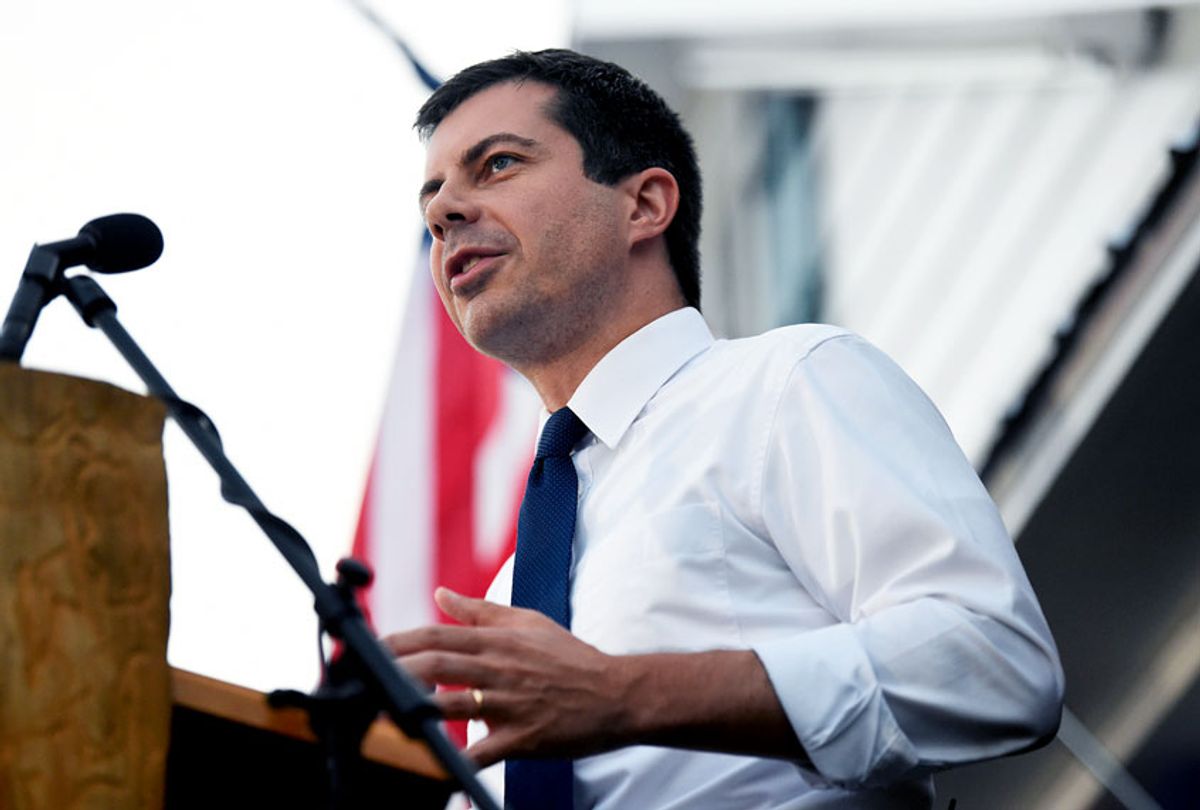Mayor Pete Buttigieg of South Bend, Indiana told NPR on Saturday that while he regretted the racial disparity between his city's African American population and the number of black police officers, the issue was "not only [in] South Bend" but is in fact "really a national challenge."
Buttigieg discussed these issues on the NPR series "Off Script" after he was asked about the fact that 88 percent of South Bend's police force in white even though 26 percent of its population is African American. That racial disparity was highlighted in June when a white police sergeant in South Bend shot and killed an African American man, Eric Logan, during a car break-in investigation. When Buttigieg temporarily left the campaign trail to meet upset constituents in South Bend, many of them emotionally jeered him for what they perceived as his insufficient efforts to hold police officers accountable.
"These relationships are important, I think not only from the perspective of racial justice [but also] from the perspective of public safety itself," Buttigieg told NPR Scott Simon as well as two undecided voters.
He then added, "We've had a real struggle with that during my time as mayor. But not only [in] South Bend. It's really a national challenge."
An African American retired Michigan State Police sergeant named Michael Logan (who is not related to Eric Logan) asked Buttigieg about what he would do to create more trust between minority communities and police officers.
"One of the things I saw most immediately in my career was the need for law enforcement to actively engage with the under-represented community ... because that has a long-term effect on people's behavior and in cultural change," Buttigieg replied. He said that he wanted to create a national police academy that "trains [law enforcement officers] not just in tactics but in these kinds of cultural questions." He also said that there should be a partnership between historically black colleges and universities and the federal government to encourage more people of color to pursue careers in law enforcement.
When Logan asked how Buttigieg would pay for his plan, the South Bend mayor replied that "it is going to require asking some to do more — in particular, corporations — that right now, can make billions of dollars and pay literally zero in federal income taxes. And we can't expect to thrive or grow in safety and health, if we're not willing to gather that revenue and put it to good use."
As Buttigieg has risen in the polls and as a fundraiser, his campaign's success has received a lot of backlash from other Democrats who view him as too inexperienced to be taken seriously as a presidential candidate, according to The New York Times. Democratic presidential candidates who have expressed this frustration include former Vice President Joe Biden, Sen. Amy Klobuchar of Minnesota and Sen. Kamala Harris of California. When confronted about this criticism, Buttigieg argued that "this is not a contest for who is the most established, it’s a contest for who is the most convincing. The better we do, I imagine the more we’ll feel some heat, but that just means we’re doing well."



Shares